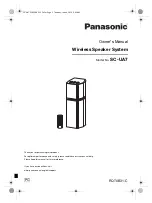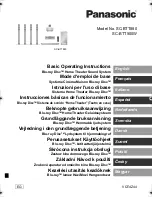
BOUNDARY CONTROL:
Reflective boundaries, such as floors, walls, even table tops, reinforce a speaker’s low
frequency output. Conversely, placing speakers out into a room decreases bass response. The
greatest low frequency output is with the BOUNDARY control in the “0” position, which assumes
no significant boundary reinforcement is present. Each control step attenuates low
frequencies by 1.5 dB (at 50 Hz), with rapidly decreasing effect above 300 Hz. Refer to the
diagram in Fig. 6 for information on setting the control appropriately.
POSITION CONTROL:
Near field monitoring reduces the effect of room acoustics on the signal, and provides greater
sonic detail. Mid and far field monitoring conversely reveal aspects of room ambience and are
more representative of end use. With increased listening distance, a speaker’s upper
frequency power response attenuates due to room influences and air absorption. The M-20
may be adjusted to compensate for this change, and provide flat response at various listening
distances. Setting the control in the “FF” (far-field) position gives the maximum high
frequency output. Each step counter clockwise (moving toward the near-field position)
attenuates the 20 kHz by an additional .75 dB with the effect rolling off at 3 kHz. See Fig. 7 for
appropriate POSITION control settings for various listening distances.
0
2
1
0
2
1
0
2
1
0
2
1
BOUNDARY
BOUNDARY
BOUNDARY
BOUNDARY
BOUNDARY
0
2
1
Quarter Space
Quarter/Half Space
Half Space
Half/Whole Space
Whole Space
Fig. 6. Boundary Control Settings Diagram
1 m
0’
1.5m
2m
2.5m
3m
Near field
Mid-field
Listener Distance
M-20
Monitor
Far-Field
POSITION
FF
NF
MF
POSITION
FF
NF
MF
POSITION
FF
NF
MF
POSITION
FF
NF
MF
POSITION
FF
NF
MF
Fig. 7. Position Control Settings Diagram


























